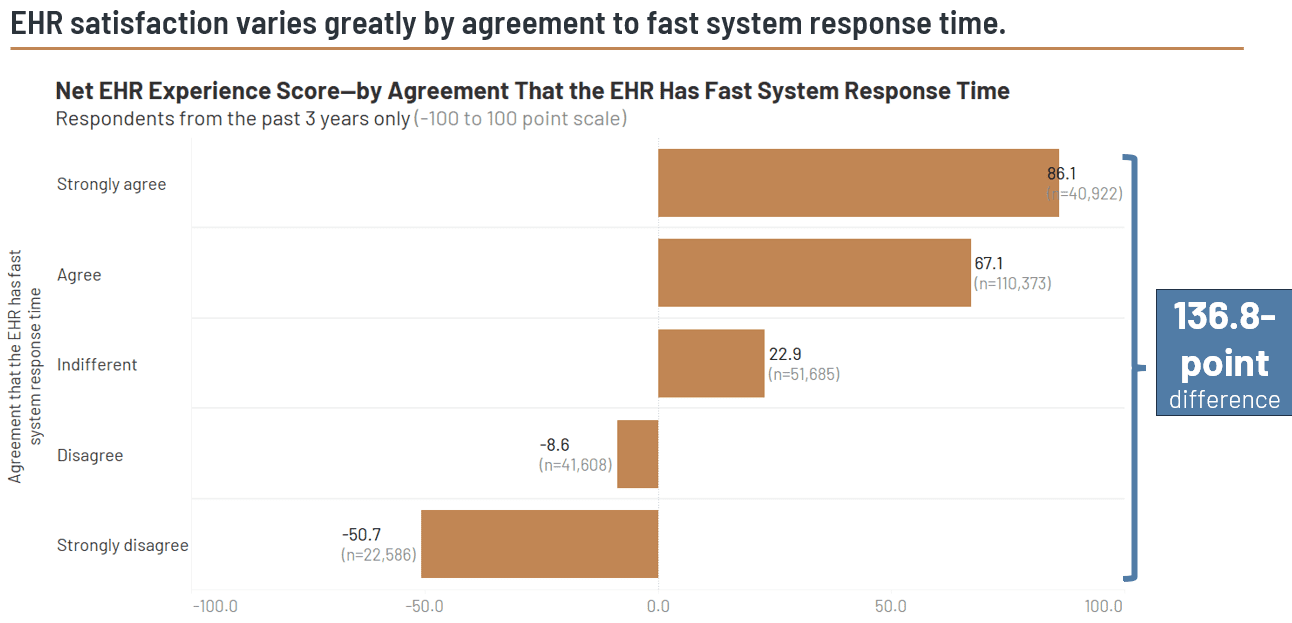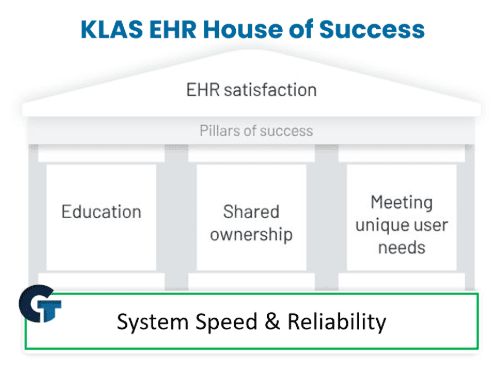50% of Health Systems: Clinicians Report EHR Speed & Reliability Issues
50% of Health Systems: Clinicians Report EHR Speed & Reliability Issues
By Ryan Oliver, SVP Healthcare Solutions, Goliath Technologies
I spent almost 10 years at KLAS, and during that time, I extensively researched IT infrastructure and how speed and reliability impact clinicians’ overall experience with the EHR. When these systems lag or fail, clinician’s experience severely reduced productivity, frustration, and negative perception of IT. Of course, this dissatisfaction extends to the EHR application they see on their screen, whether it is Epic, Oracle Health EHR, or another vendor.
Despite massive investments in optimizing, enhancing, or even replacing EHRs, over 50% of health systems still struggle with speed and reliability issues. That’s a staggering statistic, considering the direct impact on provider efficiency and patient care.
Using Data to Tell the Story
Jenna Anderson, VP of Collaborative Insights at KLAS, shared eye-opening data:
- When physicians strongly agree that response times are adequate, their net experience score is a highly positive 86.1.
- Out of 267,000 physicians surveyed, fewer than 41,000 strongly agree with this statement.
- When physicians strongly disagree, the average score plummets 136.8 points to negative 50.7.
In simple terms: doctors are much happier when response times are good, but very unhappy when they aren’t. The problem is, only a small percentage (~15%) think response times are good. This leaves massive room for improvement with the right technology.
The message is clear: speed and reliability are the foundation of a positive EHR experience. These issues can always be fixed—the real challenge is finding the root cause before they disrupt workflows.
How Goliath Helps Health Systems Fix EHR Performance Issues
The KLAS House of Success for EHR Satisfaction shows system speed & reliability as the foundational element to improving EHR satisfaction, and Goliath Technologies is the only fully KLAS-rated solution that addresses system speed and reliability (KLAS report here).
Real-World Impact: A Top 5 Non-Profit Health System’s Success Story
One of the largest non-profit health systems leveraged Goliath to diagnose and resolve their biggest speed and reliability challenge – logon issues.
Here’s how they did it:
- Using Goliath’s AI-enhanced contextual data, the IT team pinpointed the root cause of slow logins. The solution was deployed in less than two hours.
- They quickly discovered that local profiles on Epic Citrix servers were causing delays, forcing users to wait for Windows to time out before logging in.
- An emergency Active Directory change was implemented to resolve the issue.
Further: They thought the issue was isolated to only a handful of users based on the number of support tickets submitted. Goliath quickly pointed out that the issue was widespread, impacting 37K users despite being largely unreported.
The Result:
Logon times dropped by over 50%, allowing physicians to see more patients—or even get home for dinner on time. Read the full story here.
Fix the Foundation Before Investing in New Solutions
Over the past year, nearly every health system I’ve spoken with has either purchased or is considering ambient speech products to improve clinician efficiency. But here’s the reality: if your EHR infrastructure is slow and unreliable, physicians will still be dissatisfied—no matter what new technology you add.
You can contact the author directly at ryan.oliver@goliathtechnologies.com



